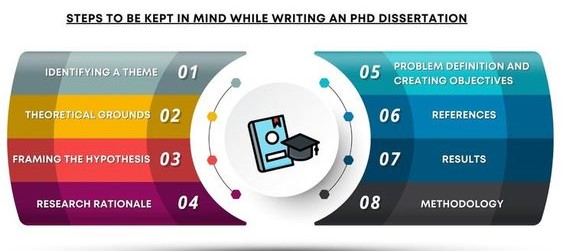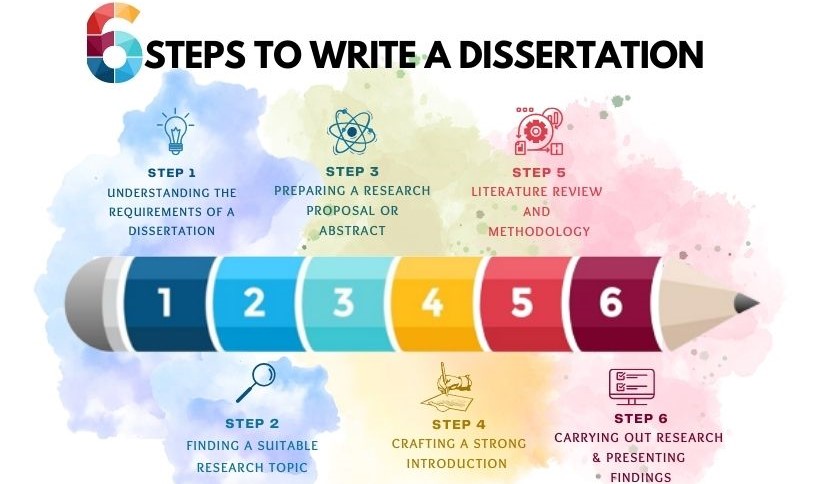
Table of Contents
The dissertation, the culmination of years of academic toil, stands as a formidable challenge for even the most seasoned scholars. It’s a complex project demanding meticulous research, rigorous analysis, and masterful articulation. However, amidst the intellectual pursuit, many students stumble upon unexpected hurdles – the dreaded dissertation writing pitfalls. These are the traps that can derail even the most promising dissertation, leaving students feeling overwhelmed, frustrated, and lost.
This article serves as a comprehensive guide to navigating the dissertation landscape, equipping students with the knowledge and strategies to avoid the most common dissertation writing pitfalls. By understanding these potential roadblocks and adopting proactive measures, students can streamline their dissertation process, maximizing their chances of success. This article also provides a list of compelling topic ideas for nursing dissertations that stand out.
Unveiling the Dissertation: A Journey of Scholarly Exploration
The word “dissertation” often evokes a sense of dread among students, particularly those nearing the end of their academic journey. But what exactly is a dissertation, and why is it such a pivotal part of higher education?
Simply put, a dissertation is a long, original research paper written by a student as part of their doctoral or master’s degree requirements. It’s the culmination of years of study and represents a significant contribution to a specific field of knowledge.
Unlike a typical essay or research paper, a dissertation delves deeply into a chosen topic, requiring extensive research, analysis, and interpretation. It’s a meticulous exploration of a complex question, leading to new insights and potentially challenging existing theories.
The dissertation process is a rigorous one, often requiring the guidance of a faculty advisor. Students must demonstrate their ability to conduct independent research, formulate a compelling argument, and present their findings in a clear and concise manner.

While the dissertation can be a daunting task with various unforeseen dissertation writing pitfalls, it’s also an incredible opportunity for intellectual growth and personal fulfillment. By tackling a challenging research question and contributing to the scholarly world, students gain invaluable skills and knowledge that will serve them well in their future endeavors.
In essence, the dissertation is a testament to the culmination of a student’s academic journey, a stepping stone to higher learning, and a gateway to a world of new possibilities. It’s a journey of discovery, a testament to hard work, and a foundation for a future shaped by intellectual curiosity and academic rigor. Due to the rigorous research and planning involved, there are some common dissertation writing pitfalls that you may face in the process. The following chapters lists the common dissertation writing pitfalls and offers strategies on how to avoid them.
The Key Dissertation Writing Pitfalls and How to Avoid Them
1. Procrastination: The Dissertation’s Silent Enemy
Procrastination is one of the most common dissertation writing pitfalls and a pervasive foe in the dissertation journey. It is often fueled by fear, anxiety, and the sheer magnitude of the task. It’s easy to find excuses to postpone the inevitable, but delaying the dissertation only amplifies the pressure and reduces the time available for quality work.
Avoiding the Pitfall:
- Break it down: Divide the dissertation into manageable chunks, setting realistic deadlines for each section. Celebrate small victories along the way to maintain momentum.
- Establish a routine: Create a consistent writing schedule, even if it’s just an hour or two a day. Regular writing sessions will prevent the dissertation from looming over your head.
- Find a writing buddy: Collaborate with a fellow student or research group, holding each other accountable for progress and offering support.
- Seek guidance: Consult with your advisor regularly, updating them on your progress and seeking feedback. Their guidance can provide direction and motivation.
2. Lack of Focus: The Wandering Dissertation
The dissertation’s scope is vast, encompassing a multitude of research questions, theoretical frameworks, and methodological approaches. Without a clear focus, the dissertation can easily become a rambling exploration, lacking coherence and direction. Here’s how to avoid such dissertation writing pitfalls.
Avoiding the Pitfall:
- Define a clear research question: Ensure your dissertation has a central question that drives your entire research endeavor.
- Develop a strong thesis statement: Craft a concise and compelling thesis statement that outlines your key argument and provides a clear roadmap for your dissertation.
- Establish a well-defined scope: Clearly delineate the boundaries of your research, avoiding excessive tangents or irrelevant information.
- Utilize a writing plan: Create an outline that clearly outlines the structure and flow of your dissertation, ensuring each section contributes to the overall argument.
3. The Research Black Hole: Information Overload
Dissertation research can be a thrilling journey of discovery, but it can also lead to information overload. The vast amount of available resources can be overwhelming, leading to analysis paralysis and the inability to synthesize information effectively. This is also one of the common dissertation writing pitfalls that can be very challenging to resolve. However, here are some useful strategies for success.
Avoiding the Pitfall:
- Develop a focused research plan: Clearly define your research objectives and identify specific sources relevant to your research question.
- Employ critical evaluation: Assess the credibility and relevance of your sources, selecting only those that contribute meaningfully to your argument.
- Limit information intake: Set boundaries for your research, avoiding the temptation to explore every possible avenue.
- Utilize note-taking strategies: Employ structured note-taking methods to organize your research findings and identify key themes.
4. Data Analysis Dilemmas: The Unraveling Dissertation
Data analysis dilemmas are also very common dissertation writing pitfalls. The analysis section of the dissertation demands meticulous attention to detail, drawing meaningful insights from your collected data. This process can be fraught with challenges, from choosing the appropriate statistical techniques to interpreting complex results.
Avoiding the Pitfall:
- Seek expert guidance: Consult with a statistician or research mentor to ensure you utilize the appropriate data analysis methods.
- Plan your analysis in advance: Clearly define your analytical approach and the key variables you will examine.
- Employ visualization techniques: Use graphs, charts, and tables to visually represent your data, making it easier to interpret and communicate.
- Validate your results: Double-check your analysis, seeking feedback from peers and advisors to ensure accuracy and reliability.
5. The Writing Block: A Dissertation’s Roadblock
The writing process itself can be a source of immense frustration, leading to writer’s block and stalled progress. This can be exacerbated by perfectionism, self-doubt, and the fear of making dissertation writing pitfalls.
Avoiding the Pitfall:
- Start with a warm-up: Begin your writing sessions with a simple task, such as outlining a paragraph or brainstorming ideas, to jumpstart the writing process.
- Embrace imperfection: Allow yourself to write freely, knowing that you can revise and refine your work later.
- Set realistic goals: Break down the writing process into smaller, more manageable tasks to avoid feeling overwhelmed.
- Seek feedback: Share your work with peers, advisors, and writing groups to receive constructive criticism and improve your writing.
6. The Formatting Nightmare: A Dissertation’s Cosmetic Crisis
Formatting difficulties is also a very common aspect of dissertation writing pitfalls. Formatting a dissertation according to specific guidelines can be a time-consuming and frustrating task. Missing deadlines or failing to meet format requirements can lead to penalties or even rejection.
Avoiding the Pitfall:
- Review the formatting guidelines early: Familiarize yourself with the specific formatting requirements for your institution and program.
- Use templates and style guides: Leverage templates and style guides provided by your institution to ensure consistency and accuracy.
- Double-check your work: Proofread your dissertation thoroughly, paying close attention to formatting details and ensuring compliance with all guidelines.
- Seek assistance: Utilize online formatting resources or seek help from a professional editor if needed.

7. The Citation Conundrum: A Dissertation’s Ethical Challenge
Proper citation is crucial for academic integrity and avoiding plagiarism. However, the complexities of citation styles and the vast volume of sources can lead to errors and ethical lapses.
Avoiding the Pitfall:
- Understand citation styles: Master the specific citation style required for your dissertation, ensuring consistency throughout your work.
- Use citation management tools: Utilize tools such as Zotero, EndNote, or Mendeley to manage your citations and generate bibliographies automatically.
- Double-check your citations: Carefully verify the accuracy of your citations before submitting your dissertation.
- Learn about plagiarism: Familiarize yourself with the various types of plagiarism and take steps to avoid any unintentional violations.
8. The Dissertation Burnout: A Student’s Mental Struggle
The dissertation journey is a marathon, not a sprint. The relentless demands of research, writing, and revision can lead to burnout, jeopardizing both academic progress and mental well-being. Here are strategies for resolving such dissertation writing pitfalls.
Avoiding the Pitfall:
- Prioritize self-care: Make time for physical activity, relaxation, and social interactions to maintain a healthy work-life balance.
- Set boundaries: Define clear boundaries between your dissertation work and personal life, avoiding burnout from constant immersion.
- Seek support: Connect with friends, family, or a therapist to talk about your anxieties and receive emotional support.
- Celebrate milestones: Acknowledge your progress and accomplishments, celebrating small wins along the way to maintain motivation.
9. The Advisor Disconnect: A Dissertation’s Communication Gap
This is also among the most common dissertation writing pitfalls, faced by several students. The relationship with your dissertation advisor is crucial to your success. However, communication breakdowns can occur, leading to misinterpretations, delays, and frustration.
Avoiding the Pitfall:
- Schedule regular meetings: Establish a consistent schedule for meetings with your advisor, discussing progress, seeking feedback, and addressing concerns.
- Communicate clearly and concisely: Clearly articulate your questions, concerns, and progress updates, ensuring your advisor understands your needs.
- Be proactive: Take initiative in seeking guidance, offering updates, and scheduling meetings.
- Respect your advisor’s time: Be mindful of your advisor’s schedule and prioritize your meetings for productive discussions.
10. The Fear of Failure: A Dissertation’s Mental Barrier
The dissertation is a high-stakes project, and the fear of failure can be paralyzing. This fear can hinder creativity, motivation, and the willingness to take risks.
Avoiding the Pitfall:
- Reframe your mindset: Focus on the learning process and the personal growth gained through the dissertation journey, rather than solely on the outcome.
- Embrace the challenge: View the dissertation as an opportunity to push your boundaries and demonstrate your intellectual capabilities.
- Celebrate your efforts: Acknowledge the hard work and dedication you invest in your dissertation, recognizing your achievements.
- Seek support from peers: Connect with other students going through the dissertation process, sharing experiences and offering encouragement.
Although there are several other dissertation writing pitfalls that you may still face, the ones discussed above are the most common ones that you should be on the lookout for. Nevertheless, the suggestions provided above could still be useful in dealing with other dissertation writing pitfalls.

Topic Ideas for Compelling Nursing Dissertations
Difficulties in choosing the right topic can also fall among the common dissertation writing pitfalls. Here are 5 nursing dissertation topics, encompassing a range of areas within the field to consider in your next assignment.
- The Impact of Mindfulness-Based Interventions on Burnout and Compassion Fatigue in Critical Care Nurses: This topic investigates the potential of mindfulness techniques to alleviate burnout and compassion fatigue, significant challenges for critical care nurses. You could explore different mindfulness interventions, their effectiveness on specific psychological and physiological markers, and their impact on patient care.
- The Experiences of Patients with Chronic Pain Receiving Telehealth Nursing Care: This topic examines the lived experiences of patients receiving telehealth nursing care for chronic pain. It could delve into patient satisfaction, perceived benefits and challenges of telehealth, and the impact on pain management, quality of life, and healthcare access.
- The Role of Social Determinants of Health in Predicting Hospital Readmission Rates Among Patients with Heart Failure: This topic investigates the influence of social determinants (e.g., socioeconomic factors, access to healthcare, social support) on hospital readmission rates for heart failure patients. You could analyze the relationship between these factors and readmission risk, identifying potential interventions to improve patient outcomes.
- Evaluating the Effectiveness of a Family-Centered Discharge Planning Program for Pediatric Cancer Patients: This topic focuses on the impact of a specific program designed to enhance discharge planning for pediatric cancer patients and their families. You could assess its impact on patient satisfaction, adherence to treatment plans, and family well-being.
- The Use of Simulation-Based Training to Improve Nursing Students’ Competence in Managing Sepsis: This topic evaluates the effectiveness of simulation-based training in improving nursing students’ knowledge, skills, and confidence in managing sepsis, a critical condition with high mortality rates. You could compare the effectiveness of simulation-based training with traditional lecture-based methods.
These topics are just starting points. You will need to refine them further, adding more specific details and research questions to create a compelling and focused dissertation proposal.
Frequently Asked Questions About Nursing Dissertation Writing
General:
- What is the best topic for my nursing dissertation?
- This depends on your interests, research skills, and available resources. Start by exploring current nursing research trends and identifying areas where you can make a unique contribution.
- How do I choose a dissertation advisor?
- Look for a faculty member with expertise in your chosen area who can offer guidance and support throughout the dissertation process.
- How long does it take to write a nursing dissertation?
- This varies significantly based on individual factors like research design, data collection, and writing style. However, expect to devote several months or even years to your dissertation.
- What are some common dissertation writing pitfalls?
- Procrastination, lack of planning, inadequate research methodology, and poor writing are all common dissertation writing pitfalls. There are several other common dissertation writing pitfalls that you should also be keen about including data analysis dilemmas, lack of focus and formatting issues. This article has outlined the key dissertation writing pitfalls and also provided ways to avoid them.
Methodology:
- What research methodologies are suitable for nursing dissertations?
- Quantitative, qualitative, and mixed methods approaches are all valid options, depending on your research question.
- How do I collect and analyze data for my nursing dissertation?
- Choose data collection methods that align with your research design and ethical guidelines. Analyze data using appropriate statistical or qualitative analysis techniques.
- How do I ensure the ethical considerations of my dissertation research?
- Obtain informed consent from participants, protect their confidentiality, and comply with all relevant ethical guidelines.
Writing:
- What are the key elements of a nursing dissertation?
- A well-structured dissertation includes a literature review, methodology, results, discussion, and conclusion.
- How do I write a strong literature review for my dissertation?
- Identify key research papers, synthesize existing knowledge, and highlight gaps in the literature.
- How do I format my dissertation according to APA style?
- Follow the guidelines for citations, references, headings, and formatting outlined in the Publication Manual of the American Psychological Association.
- How do I avoid common dissertation writing pitfalls?
- Break the dissertation into smaller tasks, manage your time effectively, seek feedback from your advisor, and start writing early. This article has provided the various strategies on how you can avoid the common dissertation writing pitfalls.
Finishing:
- How do I defend my nursing dissertation?
- Prepare a clear and concise presentation of your research findings, be prepared to answer questions from the committee, and practice your presentation beforehand.
- What are some tips for avoiding dissertation writing pitfalls?
- Start early, seek support from your advisor and peers, and focus on developing a strong research methodology and writing style.
- What should I do after I complete my dissertation?
- Consider submitting your work for publication, presenting your findings at conferences, and seeking further research opportunities.
Writing a dissertation is a challenging but rewarding process. By planning, seeking guidance, and avoiding common dissertation writing pitfalls, you can successfully complete your nursing dissertation and contribute to the field of nursing research.
Embracing the Dissertation Journey with Confidence
The dissertation writing journey is a complex and challenging endeavor. It requires unwavering commitment, meticulous planning, and the ability to overcome unexpected obstacles. However, by understanding the common dissertation writing pitfalls and adopting proactive strategies, students can navigate this journey with confidence and achieve their academic goals.

The dissertation is not just an academic requirement but an opportunity to demonstrate your intellectual prowess, expand your knowledge, and make a unique contribution to your field. By avoiding the dissertation writing pitfalls above and embracing the journey with enthusiasm and determination, you can turn your dissertation into a testament to your hard work, perseverance, and academic excellence.
Hire Professional Dissertation Writing Service
There are several other common dissertation writing pitfalls that you might still face along the way. But, you can easily avoid the stress of writing dissertations when you hire professional help from PhD Nurse Writer. We can assist you in crafting original and compelling nursing dissertations, essays, research papers and case studies. Our service covers topic suggestion, paper writing, proofreading, formatting and plagiarism removal.





